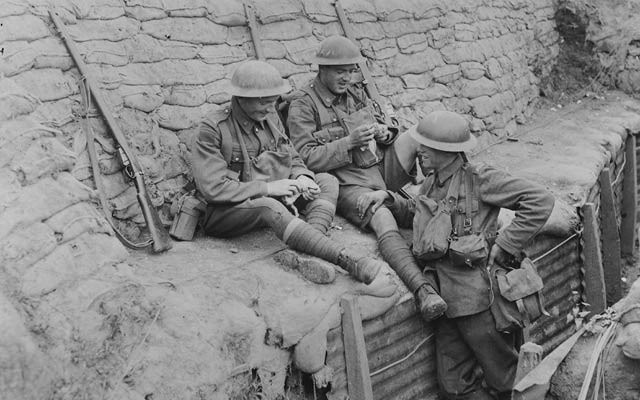In May of this year, British soldier Lee Rigby was horrifically assassinated in the streets of London, England, the victim of domestic terrorism. Within the week, and some 8,000 kilometres away in Whistler, a beautiful, flowering plant was left on our Cenotaph. A simple hand written card lay beside the flower — it read, "In memory of Drummer Lee Rigby — Please water. "
The potted flower bloomed and continued to grow nonstop all summer long and well into our warm, sunny autumn. Apparently, it was a Comsos plant and needed water almost daily.
There it remained, quietly and peacefully resting on the Whistler Cenotaph — a grey and powerful slab of Canadian granite from the Birkenhead Valley. The flower thrived for all those months sitting beside two simple white wooden crosses adorned with the names of Canadian soldiers killed in Afghanistan.
Three soldiers from two distant countries, who died in such very different circumstances and yet all remembered by simple flowers and simple crosses in our little town.
These symbols of our collective memory speak to the necessity that Canadians must always remember these soldiers and the tens of thousands of their fallen comrades from across the generations.
We must remain dedicated to remembrance. Each of us in our own very private and personal way offers our commitment. Equally important is how we come together each year, that we remember the fallen collectively, as a nation; forever grateful yet saddened Canadians.
The wars of Canada are not remembered like some sporting event or in some macabre exercise in statistics. It is a sad fact of history that, yes, World War I and World War II saw unfathomable losses; at Vimy Ridge, in the skies over London and across the cold waves of the North Atlantic...
We will never forget — how could we ever forget? And so too must we honour the less remembered, the too-often "forgotten conflicts" of Canada's history — Korea, Kosovo, Afghanistan and the many peace keeping actions over the past 60 years, which have witnessed unheralded bravery, seen suffering, witnessed incredible sacrifice, horrific struggles all with a typically Canadian stoicism and strength. As we remember on November 11, remember too those Canadians who lost their lives in these other conflicts, in training missions and sadly, to the emptiness of despair and personal grief.
This year, 2013, marks the 60th anniversary of the end of the Korean conflict in what must have seemed to be a mere heart beat in time after the end of WWII. From 1950 to 1953, Canada and her United Nations allies were once more at war.
The Korean War may be a less familiar and understood conflict of Canada's 20th century — but the geo-politics, the negotiations, the failures in diplomacy are critical questions in history. On November 11 we put those complicated twists of history to the side. What we know today is — what we remember today is — 513 brave Canadians died in defence of the ideals Canadians then, as today, hold dear — democracy and our personal freedoms.
Korea was not a conflict on the scale of WWI or WWII. It was not a battle fully engaged by all Canadians, citizen and soldier, as in previous wars. The country did not dedicate the manpower, economy and resilience to victory. For most Canadians, the years 1950 to 1953 were years of prosperity, growth and success.
For Canadian veterans of that war and for those who were lost — their struggle was less known, their battles less noted and their losses less remembered — but not on November 11 — not on this Remembrance Day.
The fighting in Korea is said to have been some of the fiercest, brutal and unrelenting in Canadian forces history. Hand-to-hand and close combat fighting was often the norm with grisly result.
In one such engagement, Canadian troops defended their front against overwhelming numbers for three days and nights at a valley called Kapyong. Casualties were heavy with dozens killed and wounded — but the Canadians held.
For their bravery, and for their collective actions, the 2nd Battalion-Princess Patricia's Canadian Light infantry (1st. Commonwealth Division) was recognized by the U.S. Congress, and awarded the American honour of a Presidential Citation — a recognition never before offered by the Americans to foreign troops.
On this November 11, whether you are at Whistler's Cenotaph, a local church, a school gymnasium, at work or at play — at the eleventh hour, of the eleventh day, of the eleventh month — take two minutes, just two quiet minutes, to reflect and remember those young, brave and selfless Canadians who made the ultimate sacrifice for each of us, for our country, for our Canada.
The Whistler Service Of Remembrance begins at 10:45 a.m. at the Whistler Cenotaph. 4100 Village Gate Blvd. in front of Whistler Fire Hall #1.




